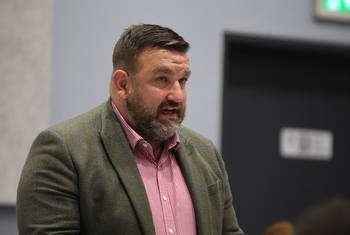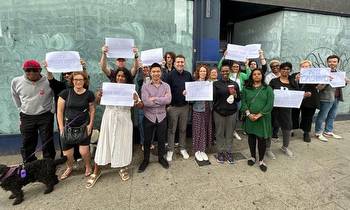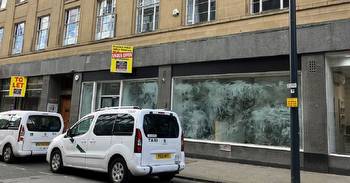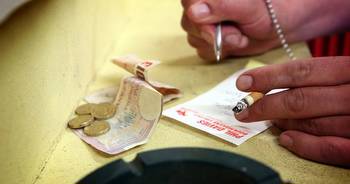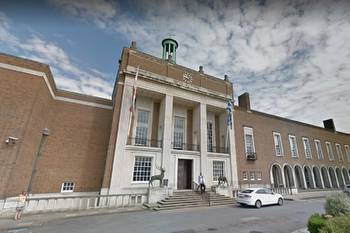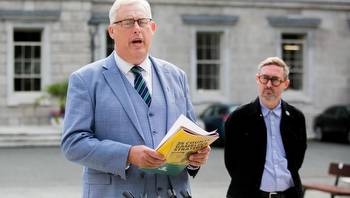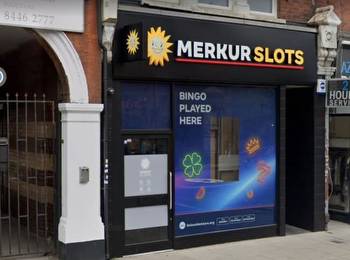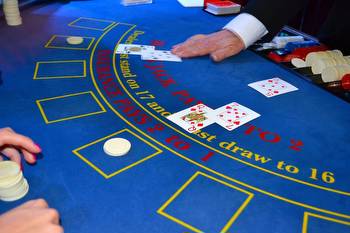'Terrifying' link between gambling addiction and poverty in East Ayrshire as council aim to tackle issue

Councillors have pledged to work to tackle the scourge of gambling addiction, particularly in some of East Ayrshire's poorest communities.
A recent study by Bristol University showed that poorer communities are ten times more likely to have betting shops and amusement arcades rather than grocers or libraries.
Now East Ayrshire Council's cabinet has moved to take action to tackle the problem, beyond the remit of a newly launched gambling addiction pilot scheme.
The pilot is focused on the training of council officers and work with the Gambling Commission on betting shops and underage players.
But councillors were keen to look beyond this, eyeing up action on advertising and other ways gambling companies 'hook' people into addiction.
Conservative councillor Ian Grant pointed towards online gambling as the biggest challenge.
He said: "The effects of gambling on people's lives can be absolutely devastating.
"The main thing in recent years, is that the opportunities for people to gamble has exploded.
"You are going from going into a corner shop where you can spend £50 on scratchcards to having a dozen casinos to draw on immediately from your phone and in your back pocket.
"I think the fact is that there are so many opportunities for people with this addiction, that it becomes very, very difficult to control through legislation.
"The popular singer Cher said she would like to 'turn back time'. Unfortunately, we are not in a position to do so. All these different methods of gambling exist. It is very difficult to do anything about it.
"The people who really matter most are the ones with the addiction. While we can spend a great deal of time to legislate, train and tinker with the rules, it is them we need to spend time on and support and help them back from the position they find themselves in.
"Addiction starts very young, at a much earlier age than problem appearing. School age impact of gambling. Effectively the casino always wins.
He added that teaching young people that the 'casino always wins' was vital and that the profits made by betting companies made the it hard to stem the top of 'opportunities'.
Depute provost Sally Cogley asked the council to move to call for a ban on gambling adverts on television.
She said: "The facts are quite terrifying. There is clear link between addiction to gambling and areas of deprivation and we should do everything can reduce the number of people hooked into gambling."
Other councillors told the cabinet of other ways advertising hooks people and how weak some of measures put in place by betting companies to address addiction are.
Labour councillor John McGhee explained how he test the 'limits' put on online betting shops.
He said that had set up a limit to the amount he spent in bets on one website, attempting to put in 'two or three times' the amount he was capped at.
However, rather than ensuring that he couldn't spend more, he was simply able to increase the limit.
He said: "It isn't restrictive at all. If you set it on January 1st, you shouldn't be able to reset it until a year later.
Cllr McGhee also pointed out the ways in which cigarette addiction was tackled.
"What did we do to stop people smoking? We stopped them advertising."
SNP councillor Claire Maitland also warned about the dangers of 'push' messaging.
Explaining she had a new phone and had never gambled, she said: "For the last eight years I have blocked every single bit of advertising [on phone]. I set my preferences and they still come.
"I am up to 130, possibly more, pushes saying 'free spins and free go' here's some free money, you can't lose. The market not on TV, it' s online."
However, council leader Douglas Reid asked the cabinet to take a broader view.
He said that they needed more information and a definite plan when looking at tackling the problem.
Cllr Reid also warned that there could be accusations of 'hypocrisy' if the bans were introduced, but the lottery continued on television.
He added that many East Ayrshire communities had benefitted from lottery cash.
Instead he urged the cabinet to agree to have a 'conversation' and bring forward a cohesive plan.
Depute leader Jim McMahon laid out the impacts of gambling.
He said: "There are hidden gambling harms. It it is when they are no longer hidden when the real impact starts.
"People losing their houses, suicide, family breakups.
"We should be conscious that [online gambling] is not just UK."
The pilot scheme is taking place in four local authorities, with EAC depute chief executive Katie Kelly leading the plan nationally.
The pilot scheme is aimed at training council officers to ensure gambling activities in East Ayrshire followed the law, followed by visits with premises with the Gambling Commission.
These visits would home in on operators who defy gambling regulations, particularly underage players.
The pilot also seeks to train officers to understand and identify the 'hidden' addictions that can be spotted and addressed.











